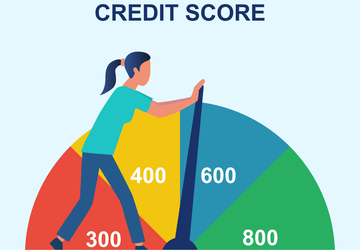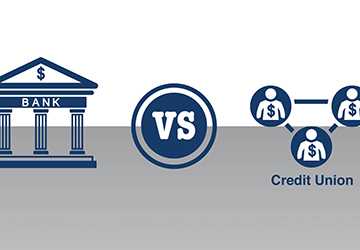4 Ways to Improve Your Credit Score by 100 Points in 3 Months
Your credit score is an important part of your overall financial health. A good score can ensure a good credit experience, favorable borrowing rates, and more credit and financial opportunities.
Think about possibly improving your credit score by 100 points in three months. While it may sound like an unrealistic goal, there are things you can do to change the situation.
In this blog post, we will cover four effective ways to improve your credit score and take control of your financial future. Implementing these techniques can help you work towards a healthier credit profile and benefit from it.
So, let's dive in and learn how to improve your credit score by 100 points in three months.
Why is a good credit score important?

A good credit score opens you up to many financial opportunities. Therefore, a high credit score makes you worthy in front of loan companies and responsible borrowers.
A high credit score makes getting a mortgage, auto loan, and personal loan easier.
Lenders are often more willing to accept your application and offer lower interest rates, which can save you a lot of money over the life of the loan.
A good credit score can also get better credit card offers, such as lower interest rates, higher credit limits, and generous rewards programs.
A credit score will help you achieve financial independence and provide you with all the possibilities to find profitable spending opportunities.
In addition, a good credit score reflects your ability to rent a good apartment, find a job, or get insurance, as most landlords, employers, and insurance companies look at a person's credit score.
Improve Your Credit Score by 100 Points in 3 Months
Let's explore four practical ways to improve your score by 100 points in three months.
1. Pay Off Large Balances
Reducing high credit card balances is an effective way to improve your credit score. Your credit utilization ratio measures how much credit you use relative to your total limits and significantly impacts your credit score.
How to Improve Your Score:
● Try to keep your credit utilization ratio below 30%.
● Focus on paying down high-interest credit card debt first. This will save you money on interest while improving your credit score.
● To keep your balances low, consider making multiple monthly payments.
Consistently reducing your credit card balances will positively impact your credit score.
2. Correct Errors
Incorrect information on your credit report can affect your credit score. It is essential to regularly check your credit report for errors and disputes regarding incorrect information.
You are entitled to one free credit report per year from each major credit bureau.
Double-check your information for inaccuracies, such as incorrect past-due payments or accounts belonging to someone else. If you find an error, dispute it online or by mail to the appropriate credit bureau.
You can significantly improve your credit score by removing false negative entries from your credit report.
3. Become an authorized user
Suppose you allow yourself to be added as a user on another credit card account. In that case, your credit history will be authorized on your credit report for many years due to a good payment history on the account you were added as an authorized user. This will be recorded on your credit report.
An easy way to do this is to ask a close family member or friend with a long payment history to add you as an authorized user on their account.
Ensure the account is in good standing, with a relatively low credit utilization ratio and a good history.
Check the account regularly to ensure it is not in default or similar. Of course, if the primary account holder continues to make payments on time, your score will increase.
4. Diversify your credit portfolio
A different mix of loan types can positively impact your creditworthiness. Lenders view the presence of a mix as a sign of your ability to responsibly handle multiple types of credit, from instalment loans to revolving credit accounts.
Let's say you determine that your available credit portfolio consists mostly of personal open loans. In this case, consider applying for a small personal loan or a secured credit card.
If you've just opened new credit accounts, be sure to pay them on time and continue to keep your balances low. Over time, responsible lenders will gradually improve your credit score.
Start Improving Your Credit Score Today

By following the steps above, you can take control of your credit score and make good progress in just three months.
A good credit score opens the door to better financial opportunities and can save money. Consider stepping up your credit repair process.
What are you waiting for? Take action now to benefit from a better credit profile.
Hundreds of others have taken the same approach to improve their credit scores, and you can be one of them.
Researching your credit score is an investment in your financial future. The sooner you do it, the faster you can achieve positive results.
Frequently Asked Questions
Q: How often should I check my credit report?
A: It's a good idea to check your credit report at least once a year. The three major credit bureaus must provide you with a free credit report each year, available at AnnualCreditReport.com.
Q: Will closing old credit accounts affect my credit score?
A: Closing old credit accounts can lower your credit score by reducing your available credit and shortening your credit history. Consider keeping old accounts, especially those with a long, positive payment history.
Q: How long will it take for my credit score to improve after following these methods?
A: The time it takes to see results depends on an individual's credit situation. However, if you follow these steps carefully, you should start to notice changes after three to six months.





